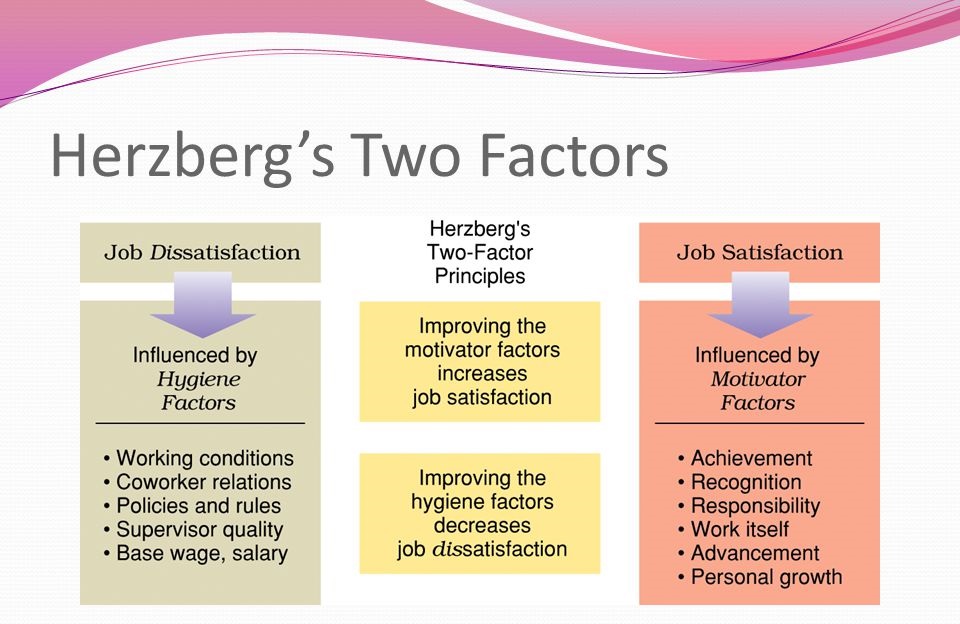The Wolf of Wall street, as a must-watch movie for Commerce students, shows us the story about Jordan Belfort’s crazy life. As Jeremy Chen mentioned in his blog, Jordan earns billions of dollars through artificially manipulating stock prices, and he ends up putting himself in jail because of fraud. Throughout the whole movie, Jordan encourages and leads his employees to engage in various kinds of illegal activities like drugs and prostitution.
 Although it seems that Jordan is nothing but an awful unethical human being, it is incontestable that he is a successful motivational speaker. The way that Jordan Belfort motivates his employees through giving radical motivational speeches impressed me the most.Jeremy said that Jordan Belfort demonstrates the theory of Maslow’s hierarchy of needs. In my opinion, Jordan perfectly utilizes the principles of Herzberg’s Two-Factor theory to motivate workers and make himself to the top of the Wall Street.
Although it seems that Jordan is nothing but an awful unethical human being, it is incontestable that he is a successful motivational speaker. The way that Jordan Belfort motivates his employees through giving radical motivational speeches impressed me the most.Jeremy said that Jordan Belfort demonstrates the theory of Maslow’s hierarchy of needs. In my opinion, Jordan perfectly utilizes the principles of Herzberg’s Two-Factor theory to motivate workers and make himself to the top of the Wall Street.
Jordan often attracts poor or undereducated people to become his employees.In another word, people who have barely nothing in their pockets. In this case, new employees crave for money in order to survive. The tremendous amount of commission they receive from selling penny stock to customers immediately satisfy job dissatisfaction factors of receiving salaries and job security.
However, the key point of Herzberg’s two-factory theory is that if all of the hygiene factors had to be addressed to avoid worker dissatisfaction but they would not in themselves create a well-motivated workforce. In another word, workers can be not dissatisfied but not motivated either.
At this point, Jordan knows exactly what to give to his employees, the motivational factors! Jordan starts to give radical motivational speeches to his employees to create a sense of recognition, and he inspires the deepest desire of workers to seek achievement and personal growth from their jobs.
and personal growth from their jobs.
As Jordan always says in his motivational speeches: “I believe in every single one of you”, this creates a sense that every employee in the company is considered to be a valuable asset to the firm. As a result, employees satisfy one of the motivational factors of recognition and create a sense of loyalty.
“There is no nobility in poverty,” Jordan says. Employees constantly receive a distorted idea that only money can define their status and achievements. With the biased concept that Jordan purposely implants in employees’ minds, employees consider the quickest way to earn more money is to engage in more irrational behavior like frauding customers and selling more bad performing stocks to them.
However, one of the most important factors is the fact that employees are motivated to seek for personal growth. In my opinion, the pursuit of personal growth is similar to the pursuit of self-actualization from Maslow’s hierarchy of needs. Like personal growth, self-actualization is nearly never permanently achieved and “Maslow (1968) estimated that less than 1% of adults achieve total self-actualization.”(D. Martin. K. Joomis.) As a result, employees are intrinsically motivated to engage in more irrational and illegal activities to compensate their restlessness.
Citations:
Martin. K. Joomis. (2007). “Building Teachers: A Constructivist Approach to Introducing Education.” (Belmont, CA: Wadsworth). Page 72–75. http://www.cengage.com/resource_uploads/downloads/0495570540_162121.pdf
Photos:
Grant J. (January 21, 2014). The Wolf of Wall Street: The Emptiest Three-Hour Movie You’ll Ever See. http://earnthis.net/wolf-wall-street-emptiest-three-hour-movie-youll-ever-see/
How to Motivate Your Team for Better Customer Service. https://www.tagove.com/motivate-team-better-customer-service/